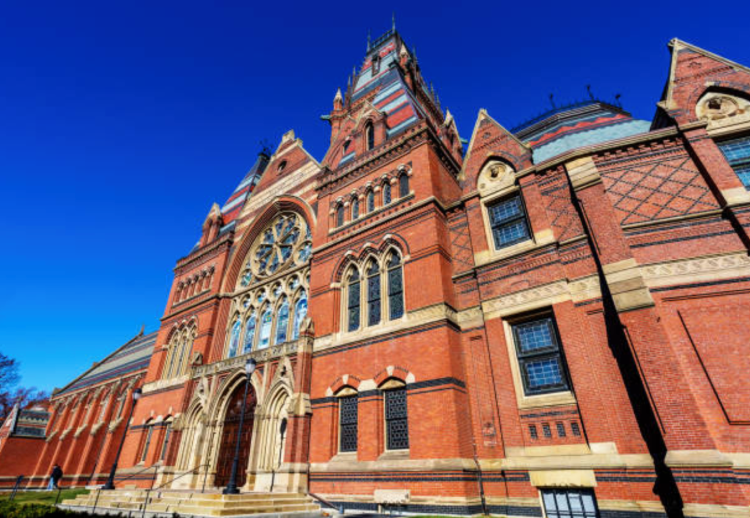
Mike LaChance, Legal Insurrection: Harvard Law Enrolls Fewer Black Students After SCOTUS Ruling on Affirmative Action
The racial bean counters on the left are deeply distressed by this news.
A year after the U.S. Supreme Court ruled affirmative action in college admissions unconstitutional, the law schools at both universities named as defendants—Harvard University and the University of North Carolina at Chapel Hill—admitted fewer Black students this fall than in years past.
Harvard Law School enrolled 19 Black students this year compared to 43 last year, The New York Times reported Monday.
“This obviously has a lot to do with the chilling effect created by that decision,” David Wilkins, a Harvard law professor, told the Times. “This is the lowest number of Black entering first-year students since 1965.” That year there were 15 entering Black students, but since 1970 Harvard Law has typically enrolled between 50 and 70 Black students in its first-year class, Wilkins said.
The decline in Black student enrollment at Harvard Law School following the Supreme Court’s ruling on affirmative action might be influenced by a variety of factors beyond the legal decision itself. Here’s a well-reasoned and logical case focusing on these alternative factors:
1. Economic Factors:
Rising Tuition Costs: The cost of education at Harvard Law School is notably high, and any increase in tuition could deter prospective students from applying, especially those from underrepresented backgrounds who might not have the same financial resources. Rising costs, coupled with potentially less financial aid due to shifts in scholarship criteria post-affirmative action, could significantly affect enrollment numbers.
Economic Climate: Broader economic conditions, like a recession or job market uncertainty, might influence students’ decisions on whether to invest in law school, particularly if they perceive the return on investment to be less certain or if they need to start earning sooner.
2. Perceived Value of a Legal Education:
Job Market for Lawyers: The legal profession has faced scrutiny over job prospects, salary stagnation, and the overall value of a law degree. If Black students perceive that the job market or the financial benefits of a Harvard Law degree are not as promising as before, they might choose alternative educational paths or careers that seem more lucrative or fulfilling.
Changes in Legal Practice: The growth of alternative legal services, like legal tech solutions, might be redirecting interest away from traditional law school routes among diverse groups looking for innovation in legal practice.
3. Shifts in Educational Preferences:
Diversity in Educational Opportunities: There might be a movement among students towards schools or programs that offer different kinds of diversity or educational experiences. This could include institutions that have a stronger focus on social justice or community engagement, which might not be as pronounced at Harvard post-ruling.
Alternative Programs: The rise in popularity of online, part-time, or specialized legal education programs might draw students who previously would have considered Harvard but now seek more flexible or niche educational experiences.
4. Social and Cultural Shifts:
Public Perception and Media: Negative publicity or shifts in public perception about elite institutions like Harvard, especially in terms of inclusivity or support for minority students, could impact enrollment. If students feel less welcomed or supported, they might look elsewhere.
Cultural Trends: There’s a broader cultural movement towards questioning the value of traditional degrees, particularly from elite institutions, in favor of skills-based learning or entrepreneurial ventures, which might disproportionately affect enrollment from certain demographics.
5. Admissions Policies and Outreach:
Changes in Admissions Criteria: Even without race as a factor, changes in how admissions are conducted, such as increased emphasis on other metrics like LSAT scores or undergraduate GPA, could inadvertently lower the number of Black students if those metrics are not equally distributed among applicants.
Outreach and Recruitment: Harvard might have altered its recruitment strategies, perhaps focusing less on certain regions or types of schools where Black students are more represented, or the school’s outreach might not have adapted effectively to the new legal landscape.
6. Competition from Other Law Schools:
Peer Institutions: Other law schools might have stepped up their efforts to attract students who would have considered Harvard, offering competitive scholarships, special programs, or a more inclusive environment perceived to be more aligned with students’ values or needs.
These factors, when combined, suggest that the drop in Black student enrollment at Harvard Law School might not solely be attributed to the Supreme Court’s decision on affirmative action but could be influenced by a complex interplay of economic, social, educational, and institutional dynamics. Each of these elements could have contributed to changes in enrollment patterns observed in the year following the ruling.
